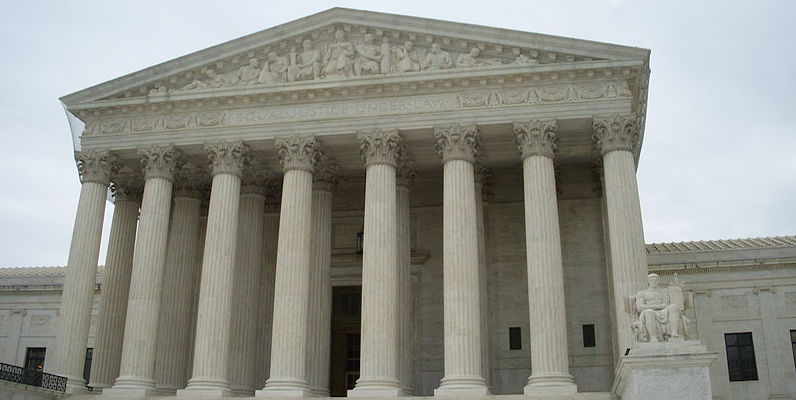By HLPR Online Staff
Since the Supreme Court’s June 2013 ruling in United States v. Windsor—holding the federal Defense of Marriage Act unconstitutional—gay rights advocates have brought a tidal wave of lawsuits across the country successfully challenging state bans on same-sex marriage. On October 6th of this year, the Supreme Court denied cert in cases from five states, leaving in place lower court rulings striking down same-sex marriage bans. Though many had hoped the Court would hear the cases and rule definitively for same-sex marriage, the Court was likely following its usual practice of waiting for a split of opinion in the federal courts of appeals before taking a case. During a talk at the University of Minnesota Law School this past September, Justice Ginsburg at least seemed to indicate that the Court may wait for a split before taking up same-sex marriage.
Thus, all eyes are now turned to the Sixth Circuit Court of Appeals in Cincinnati, where a same-sex marriage case may produce the split needed to encourage the Supreme Court to act. The swing vote in the Sixth Circuit case is Judge Jeffrey Sutton, a former Scalia clerk and frequent conservative voter. With a decision expected any day now, Judge Sutton could be the vote to drive gay marriage to the Supreme Court.
But for those committed to true equality for gay people, what does a Supreme Court ruling in favor of same-sex marriage actually get you?
The obvious answer is that it lets same-sex couples marry in the many states that still ban the practice. For those people and their families, this certainly has enormous significance for both practical—think joint filing of state income tax returns—and emotional reasons. A ruling in favor of same-sex marriage would also have great symbolic impact, with the Court’s moral and legal authority coming down on the side of equality.
What the ruling does not do, however, is end discrimination against gay people. Brown v. Board of Education proscribed laws officially segregating based on race, but today our schools are still largely segregated. Roe v. Wade guaranteed the right to an abortion, but good luck trying to get an abortion in Mississippi. The point here is not that a Supreme Court endorsement of same-sex marriage would produce a national political backlash similar to those following Brown and Roe, a result probably precluded by the incredible rate at which public opinion is shifting in favor of same-sex marriage. The argument, rather, is one about the limits of what the Supreme Court as an institution can accomplish.
A Supreme Court ruling will not prevent middle school students from teasing gay classmates. It will not prevent a manager from denying a promotion because he is uncomfortable around his gay employee. In the same way that electing an African American president doesn’t mean that racism is over, a Supreme Court ruling for gay marriage doesn’t mean that we are past homophobia. In a society where we tend to look to the Supreme Court for the final and authoritative answers on questions of rights, it can be easy to overemphasize the weight of the answers we are given. A right is meaningless if not enforced, and worth little if it comes without widespread attitudes and opinions in concert with it.
So, when the Court does come around to endorsing same-sex marriage—and in all likelihood it will—we should keep in mind that the pursuit of equality for gay people is not over. Constitutional protection for same-sex marriage is only one step in the process. Winning over hearts and minds is a much bigger task, and one that the Supreme Court is necessarily ill-suited to accomplish.

